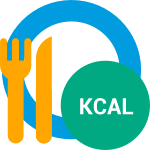Dietitian Support
- Compassionate Care: Personalised Nutritional For Optimal Health
- Expert Team: Professional Team With Many Years Of Clinical Experience
- Integrated Approach: Working With Our Therapy Team For Recovery
DIETITIAN SUPPORT
Heal Your Mind & Body, One Bite at a Time
WeightMatters is a Specialist Obesity and Eating Disorder Clinic, and our expert dietitians are committed to helping you achieve optimal health through personalised, science-based nutrition plans.
Our team takes a structured and informed approach to improve your health status, drawing on the latest advancements in nutritional science.
We understand that every individual’s journey is unique, which is why our dietitians work closely with you to develop a customised plan tailored to your specific needs.
By conducting a comprehensive review of your health history, symptoms, food sensitivities, and nutritional deficiencies, we ensure that your plan supports your overall well-being.

Review of your health history and current symptoms

Assessment of your current diet and nutritional deficiencies

Analysis and full explanation of any diagnostic tests

Review of your nutritional requirements

Personalised diet plan to match your dietary needs, health conditions and lifestyle preferences

Individual supplement programme to promote optimal nutrition when necessary
Our services extend beyond traditional diet consultations, incorporating lifestyle and nutrition coaching designed to deepen your understanding of your own biochemistry and nutritional needs.
Our goal is to empower you with the knowledge and motivation to achieve your long-term health goals, creating sustainable changes that lead to lasting results.
Discover a holistic path to health and healing at our clinic, where every step is designed with your success in mind. Call us today to start your healing journey.
TAKE CONTROL OF YOUR HEALTH TODAY – WE ARE HERE TO HELP
Struggling with weight and eating challenges? You don’t have to face it alone.
Our compassionate team is ready to listen, support, and guide you toward a healthier, happier life.
Book your free call now and take the first step.
OUR FEES
Our initial consultation is free of charge, with health coaching sessions starting from £90, therapy sessions at £120, and nutrition consultations from £200.
Health packages and multi-session bundles available – we’ll guide you to the most suitable option when we speak.
MEET SUE, CLINICAL DIRECTOR OF NUTRITIONAL SERVICES
Sue describes how the dietitian team at WeightMatters is here to support you.
Weight Loss Strategies
Dietitians specialising in obesity, weight loss, and weight management focus on helping individuals achieve and maintain a healthy weight through personalized nutrition and lifestyle interventions. Here are some of the interventions our expert team at WeightMatters may use:
1. Personalised Meal Planning – We create individualised nutrition plans that cater to a person’s specific health needs, preferences, and goals, ensuring a balanced intake of nutrients while reducing excess calories.
2. Behavioral & Lifestyle Modifications – We provide guidance on behavioral changes that can support weight loss and maintenance, such as mindful eating, portion control, and developing a healthy relationship with food.
3. Education & Skill-Building – We educate clients on understanding nutrition labels, portion sizes, and the principles of a balanced diet. We also teach skills for planning, shopping, and preparing healthy meals that support weight management.
4. Physical Activity Guidance – We promote the integration of regular physical activity into daily life as part of a holistic approach to weight management.
5. Monitoring & Support – We schedule regular follow-up appointments to monitor progress, provide encouragement, and adjust plans as necessary, addressing any challenges and barriers to weight loss.
6. Addressing Medical Conditions – We often work with individuals who have medical conditions such as diabetes, hypertension, or heart disease, tailoring nutrition strategies to manage these alongside weight concerns.
7. Metabolic & Hormonal Considerations – Understanding and addressing factors such as metabolism, hormonal imbalances, and genetic predispositions that may impact weight loss.
8. Pre & Post Bariatric Surgery Nutritional Guidance – We provide crucial pre-surgery counselling to ensure clients understand the dietary changes required for surgery and achieve any necessary pre-surgery weight loss. Post-surgery, we help clients navigate the transition from liquid to solid foods and ensure adequate nutrient intake for healing and recovery.
By providing evidence-based guidance and personalised strategies, our dietitians empower our clients to achieve sustainable weight loss and foster long-term health and well-being.
Eating Disorders Nutrition
We have very experienced dietitians who specialise in the treatment of eating disorders. They focus on the nutritional and psychological aspects of eating disorders such as anorexia nervosa, bulimia nervosa, binge eating disorder, and other related conditions. Here are some of the interventions they may use:
1. Nutritional Rehabilitation – They work to restore physical health by developing personalised meal plans that ensure balanced nutrient intake, and help clients achieve a healthy weight.
2. Behavioral Support – Our dietitians collaborate closely with our therapists and medical team to support behavioral changes necessary for recovery, addressing dysfunctional eating patterns and promoting a healthier relationship with food.
3. Education & Counseling – They provide education on nutrition and help clients understand the role and importance of food in their overall well-being, dispelling myths and misconceptions about eating and weight management.
4. Monitoring & Assessment – Ongoing assessment of a client’s nutritional status, food intake, and progress in treatment is a critical part of their role to ensure that the recovery plan is effective and adjusted as necessary.
5. Preventative Strategies – Dietitians also play a role in prevention, offering education and strategies to individuals at risk of developing an eating disorder.
Our dietitians specialise in eating disorders, providing comprehensive care to address both the physical and emotional components of eating disorders to support recovery and long-term health.
Health Conditions
Our team specialises in the nutritional, lifestyle and medical management of health, performance and wellness.
Here are some of the health conditions a registered private dietitian can help with.

Weight Management
Our team is able to support you with any weight concern, whether is to lose weight, gain or maintain weight. We can help you achieve your goals.

Gut Health
Our digestive system is essential to many aspects of our health and wellbeing. Our team specialises in IBD (Crohn’s and Ulcerative Colitis), IBS, food intolerances and digestive issues including constipation, bloating and abdominal pain.

Hormonal Imbalances
Experiencing an imbalance of hormones can lead to variety of symptoms, from PMS and hot flashes to unwanted hair growth and brain fog. We can help to assess your hormonal status and help you restore balance.

Energy
Maintaining adequate levels of energy, nutrients, movement and rest for optimal health

Balance
Balancing different food groups, and consuming foods in the right proportion

Calories
Consuming the appropriate number of calories to maintain a healthy weight depending on your metabolism and exercise levels

Nutrients
Focussing on creating a diet that is nutrient dense without being high in calories

Guidance
Learning how to be moderate with foods that are higher in fat or sugar

Variety
Exploring a varied diet that provides all the nutrients necessary for good health
LINGO – CONTINUOUS GLUCOSE MONITOR
To support your health goals whether they are weight management, improving energy or sleep quality, we work with a continuous glucose monitor called Lingo.
Let us help you build healthier habits and achieve greater wellbeing with guidance from our expert team and real-time data from the Lingo biosensor on your personal glucose response to food, stress, sleep, and exercise, 24/7.

Lingo is not for medical use. 18+ only. Individual responses may vary.
© 2024 Abbott. The biosensor housing and Lingo are marks of the Abbott group of companies.
GETTING STARTED – DIETITIAN SUPPORT
We believe it is important for clients to begin their journey by focusing on the area most impacting them. Some might initially start with therapy to address psychological and emotional factors, while others might opt to see a nutritionist first to establish a healthier eating structure.
As you progress forward through your treatment with us, additional services can be seamlessly integrated into your plan.
Our Healing Disordered Eating: Rebalance programme allows you to blend both our psychology and nutrition services for effective eating disorder treatment.
Our Holistic Weight Loss: Reframe programme allows you to blend both our psychology and nutrition services, and our Weight Loss Medication packages provide support with both our medical and nutrition teams, to support healthy weight loss.
Let us support you with our effective multi-disciplinary team (MDT) approach for effective treatment. Now is the time to understand your eating behaviour, and develop a programme that transforms your life.
It is time to feel hopeful, heal, and start your journey to recovery.
Call us now, or book a free assessment call with our friendly client services team, who will answer any questions you have.
Our Fees
We offer dietitian sessions online from the comfort of your own home. We also see clients in central London at the King Edward VII Medical Centre.
We know that healing your body takes time, so after your initial dietitian assessment we offer flexible time bundles so you can curate the length and frequency of ongoing support that suits you.
| Initial Dietitian Assessment | Cost |
|---|---|
| 60-minutes | £200 |
| Flexible Ongoing Support | Cost |
|---|---|
| 2-Hour Time Bundle | £380 |
| 3-Hour Time Bundle | £555 |
| 4-Hour Time Bundle | £720 |
Each Time Bundle Is Payable In Two Equal Instalments
smart nutrition apps
To support your health goals and progress, our Dietitians and Nutritional Therapists offer additional support using smart nutrition apps such as Nourishly and Recovery Record.

Nourishly
Nourishly is a smart nutrition management app that fits into your life and links you with your nutrition practitioner, to keep you moving from strength to strength.
Nourishly helps you to understand your mood and emotional response to eating, increases your motivation and accountability, provides regular support and connection with your nutrition practitioner and above all, helps to keep you on track to meet your health goals!

Recovery Record
Recovery Record is a smart eating disorder recovery app that fits into your life and links with your treatment team to help you achieve lasting recovery.
Recovery Record allows you to track and reward your progress, and to access and practice proven coping strategies on a daily basis, and allows regular check-ins and support from your nutrition practitioner to support you in achieving lasting recovery.
TREATMENT AREAS
Here Are The Treatment Areas We Recommend For Our Dietitian Services
Explore how we can support you in changing your relationship with weight, food, eating and your body.
NEURODIVERSITY POSITIVE PRACTICE
We aim to create a space where every brain is understood and respected – including sensory sensitivities, anxiety, and rigid patterns that can overlap with eating difficulties.
IF IT FEELS EASIER, EMAIL US
Have a question before booking? Leave your details and our Client Services team will reply with a personalised response. Confidential and no pressure.
